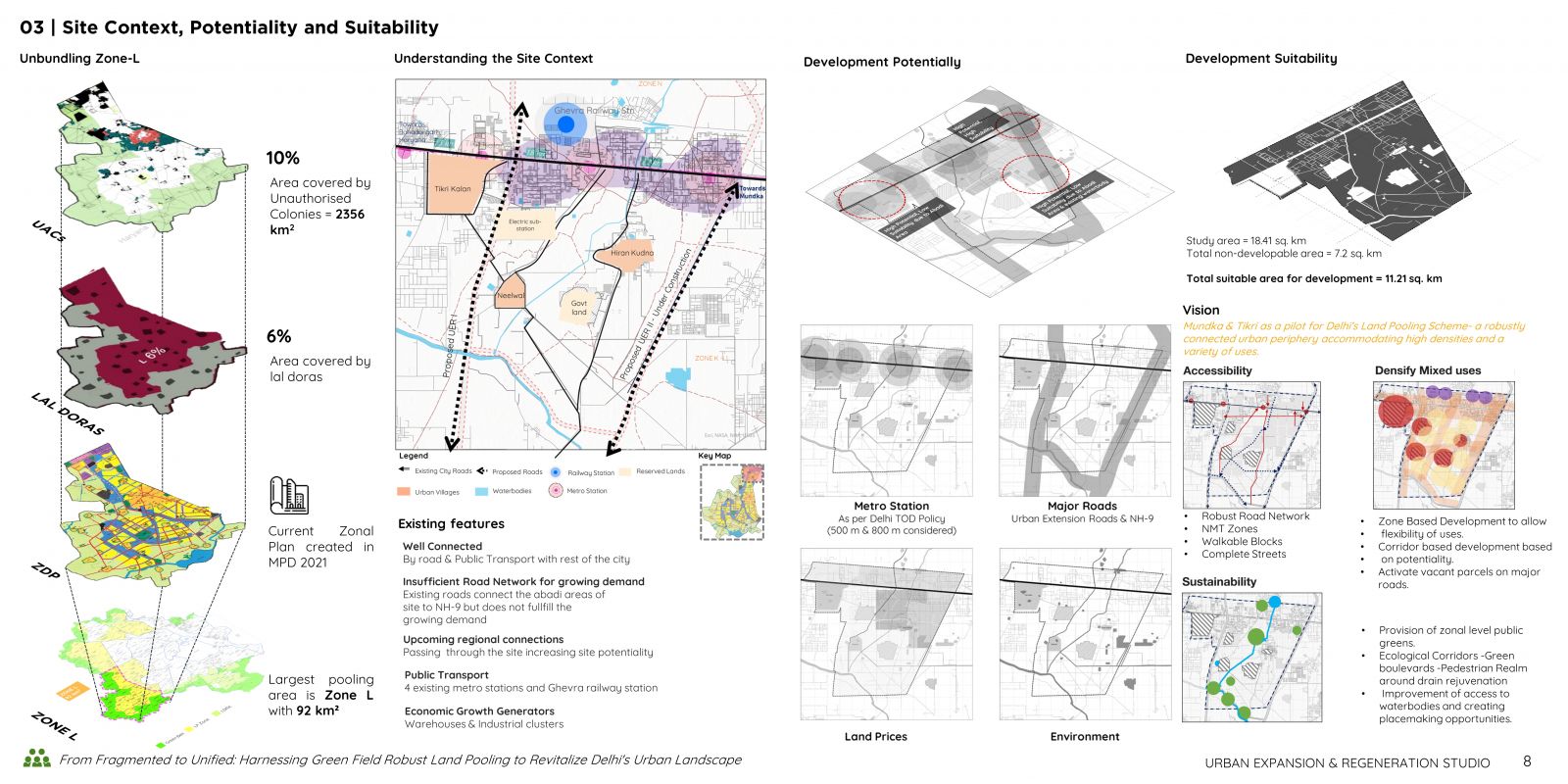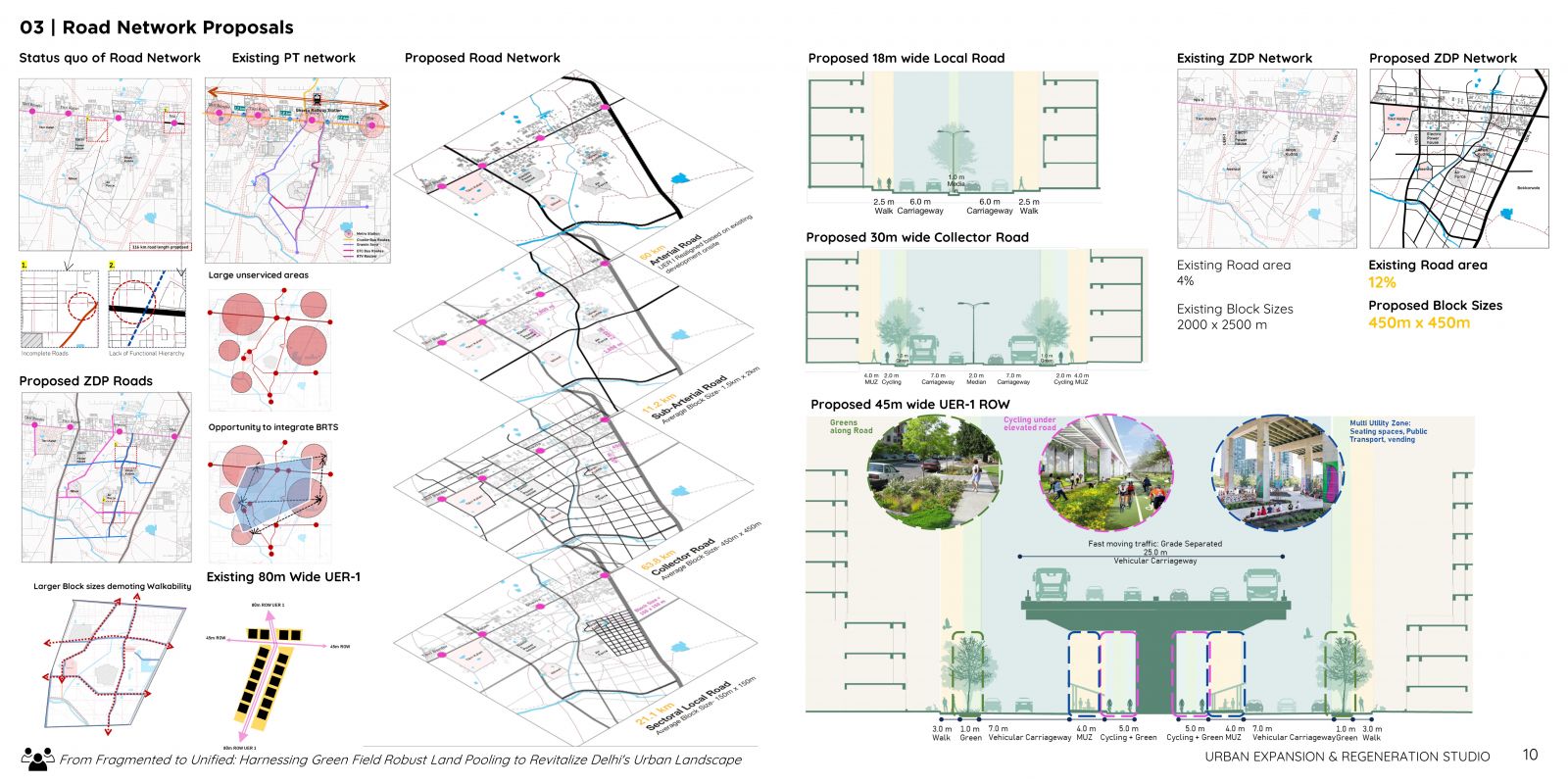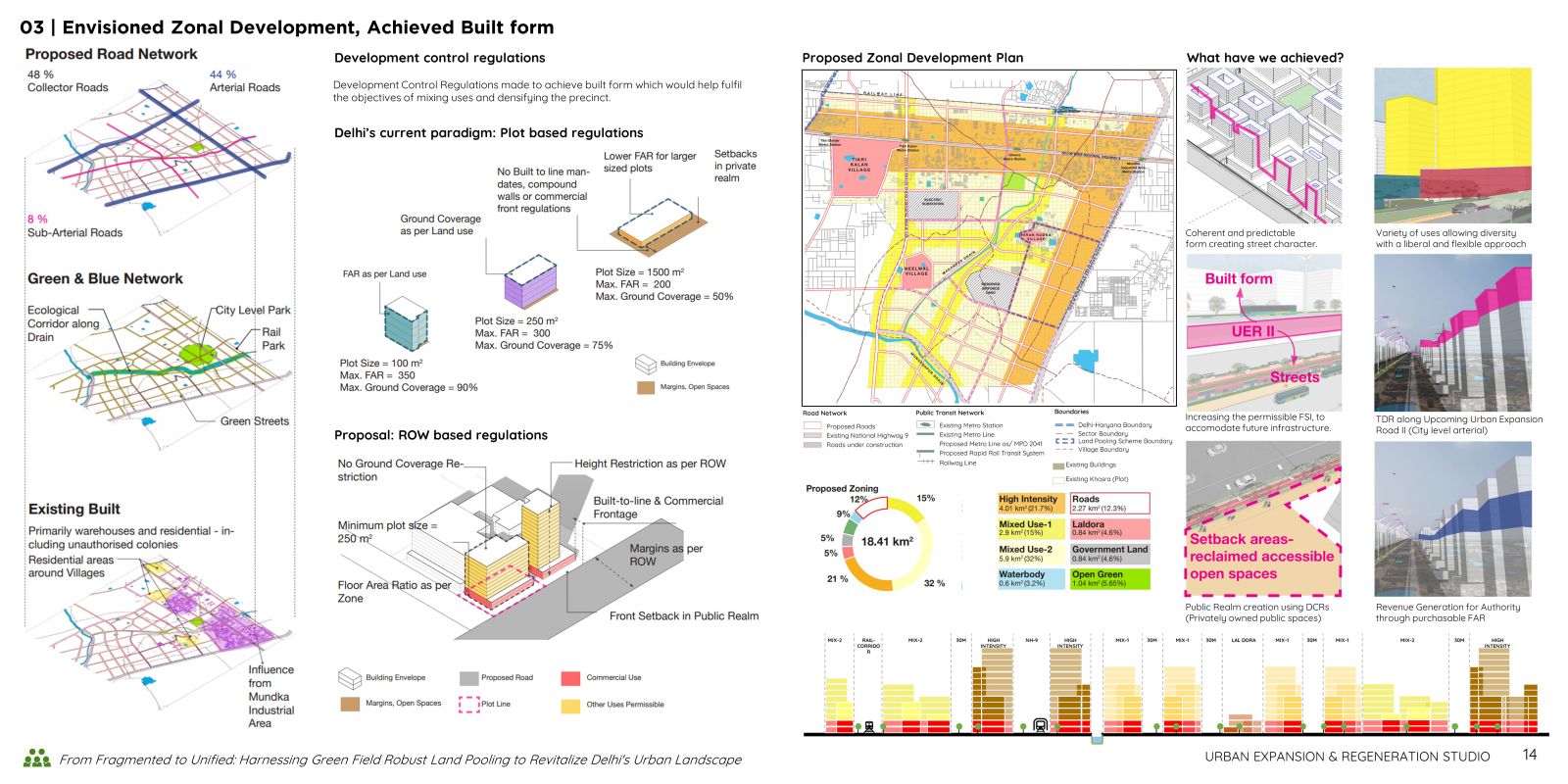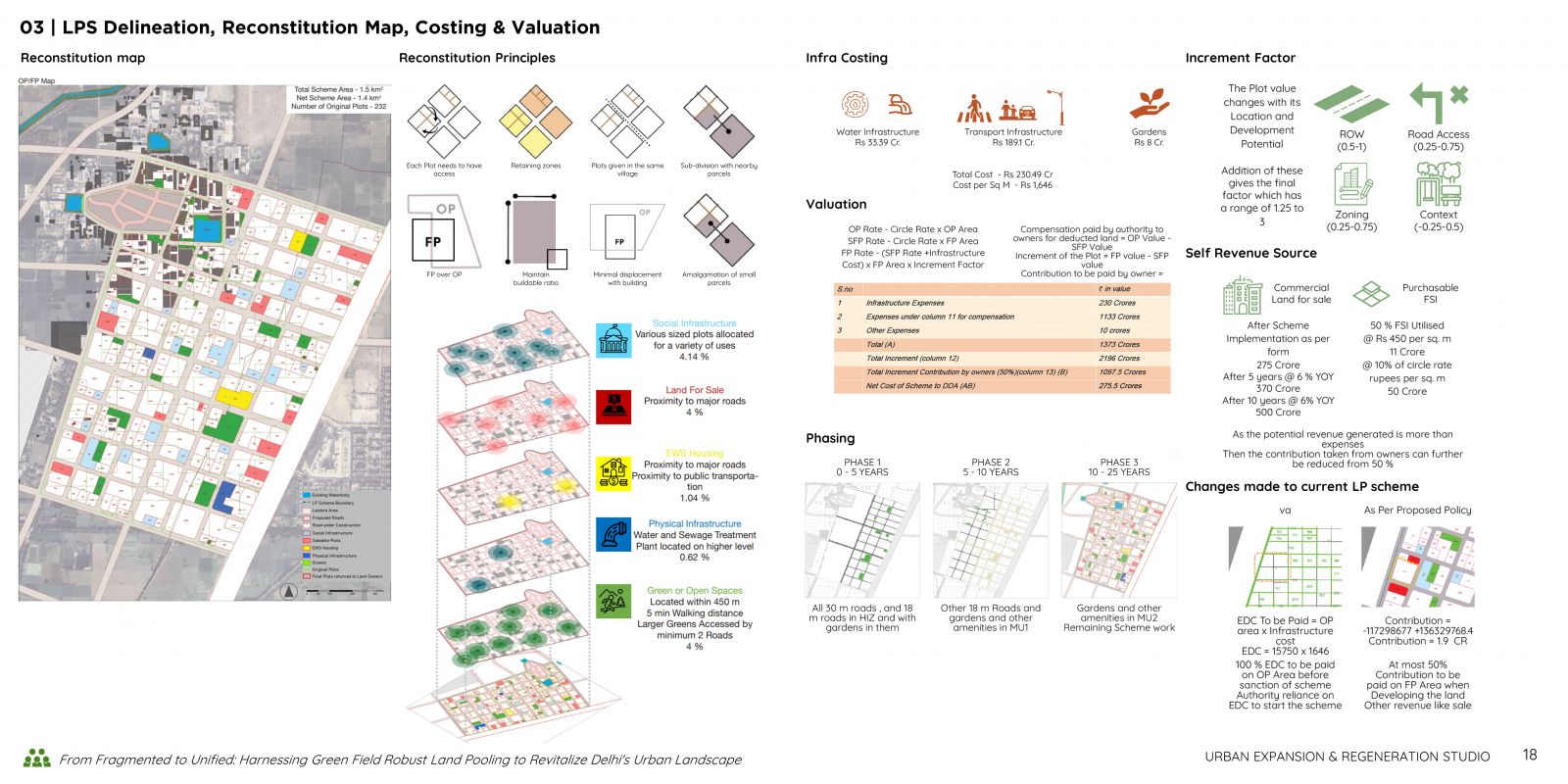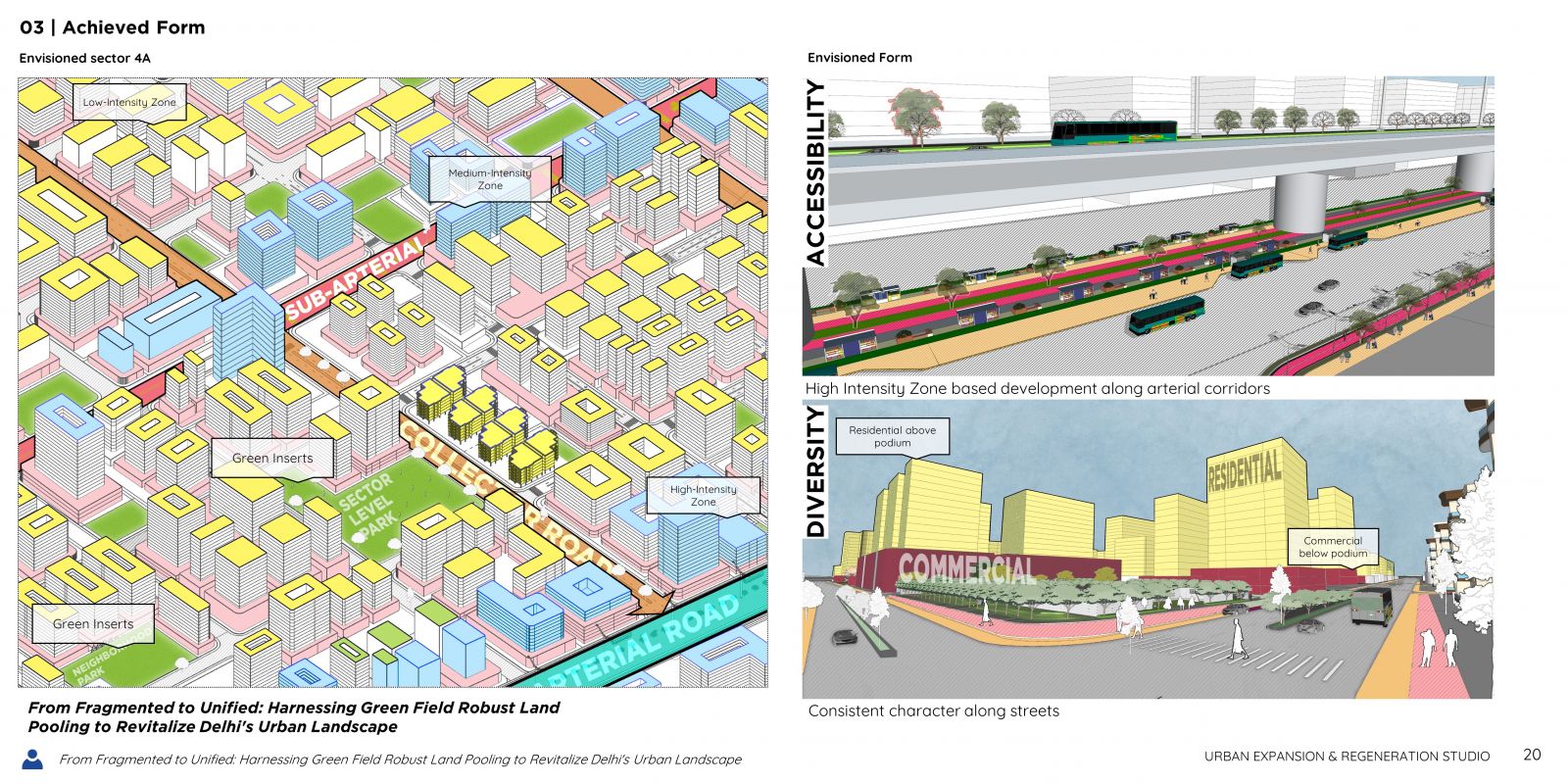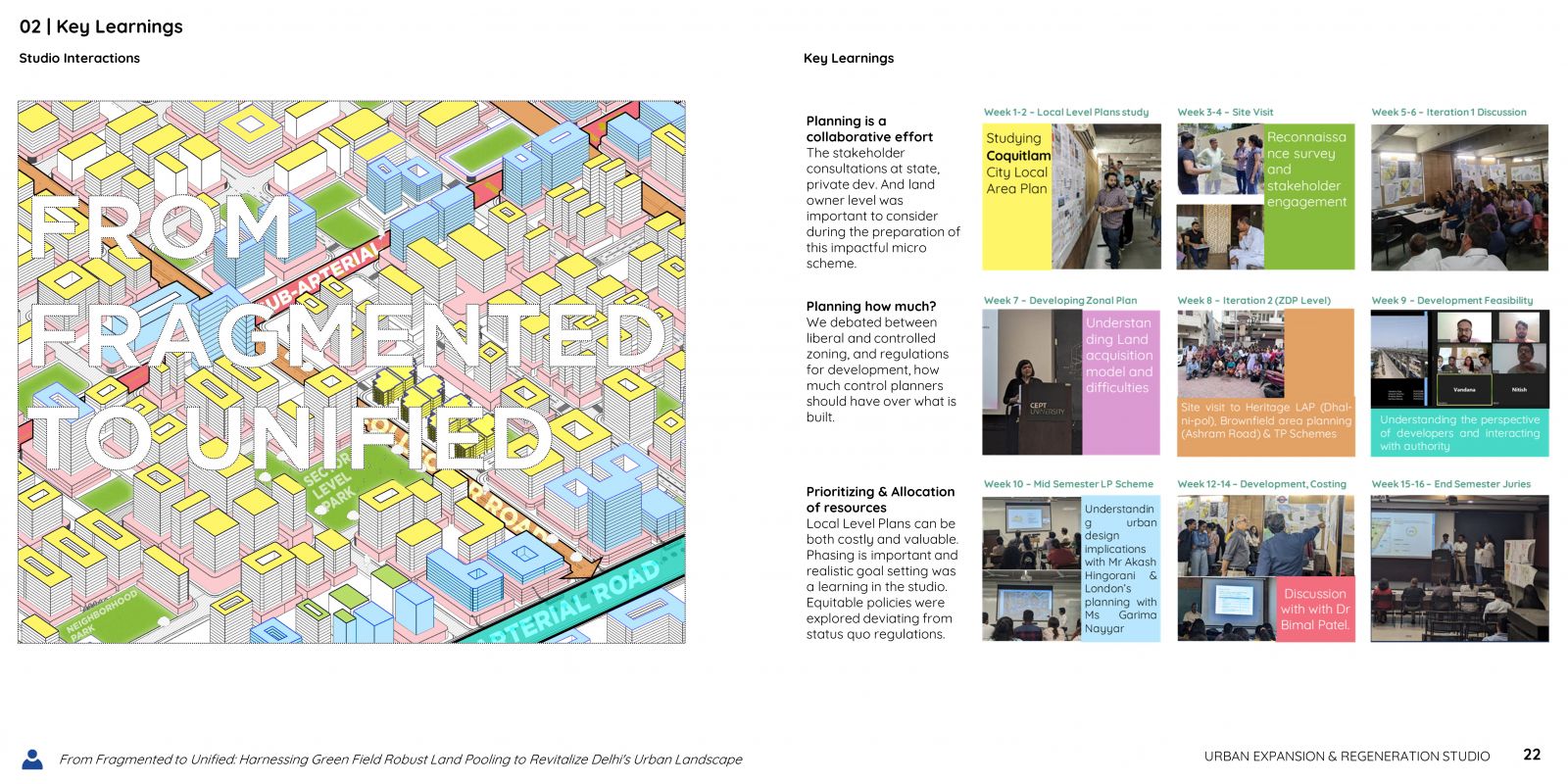Your browser is out-of-date!
For a richer surfing experience on our website, please update your browser. Update my browser now!
For a richer surfing experience on our website, please update your browser. Update my browser now!
The Land Pooling Mechanism in Delhi, introduced in 2015, has not been implemented due to a lack of clear regulations, poor coordination among stakeholders, and upfront costs for landowners. UERP Studio compared Delhi's scheme to successful town planning schemes in Gujarat, which have been successful due to effective management, state government participation, and self-financing models. Key learnings include the need for stakeholder participation in planning, the importance of a transparent regulatory framework, and addressing the financial concerns of landowners.
View Additional Work

